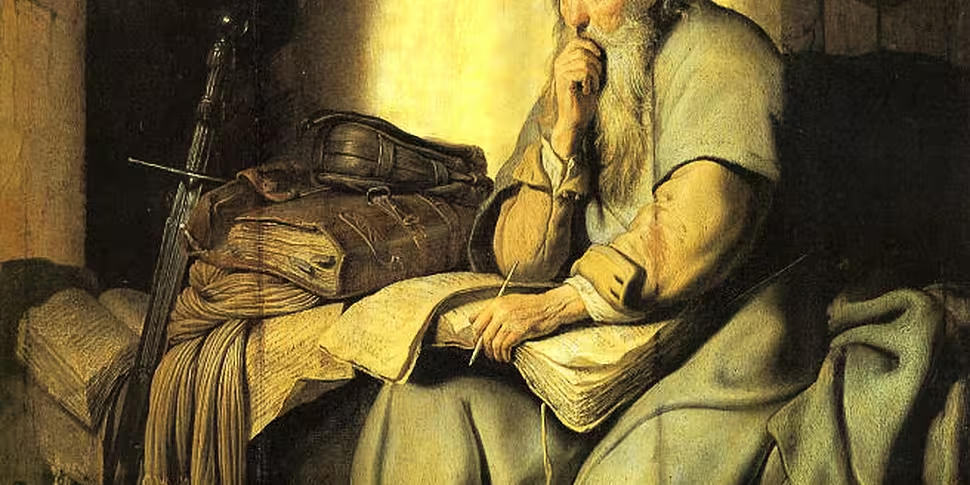There are countless stones in Christianity’s foundations with numerous writers and thinkers bringing different readings and philosophies to the world’s largest religion. One of the most important of these figures is Paul the Apostle. Presented as the author of roughly half of the books in the New Testament he has been central in shaping Christianity from its formation to the present day.
Born in roughly 5AD in the city of Tarsus, in modern Turkey, Paul was both a Jew and a Roman citizen. This duality was rare among the early followers of Jesus and afforded Paul the freedom to preach to both populations, following his conversion.
While his faith in Jesus would eventually cost him his head, Paul was originally a zealous persecutor of Christians. The son of a pious family Paul was sent to study in Jerusalem under the renowned Rabbi, Gamaliel. While this education would aid in his later proselytising it also gave Paul the fervent belief in Judaism that saw him persecute Christians “beyond measure”.
While travelling to Damascus Paul was challenged by a vision of Jesus who questioned his persecution before striking him blind and sending him on to the city. For three days Paul remained blind. When he regained his vision it was as a convert.
In the ensuing years Paul helped spread Christianity through the Roman Empire, in Europe and Asia Minor. His education and status among Romans and Jews helped to make Paul one of the most successful evangelisers and authors in Christianity’s early years. It also brought him to the attention of the Roman and Jewish authorities.
In 59AD having been arrested in Jerusalem two years earlier Paul used his rights as a Roman citizen to “appeal unto Caesar”. Here he remained, probably under house arrest, until, according to accounts, he was beheaded at Nero’s command.
Paul’s role as one of the founders of Christian doctrine has made him a widely celebrated and criticised figure.
He put the suffering and resurrection of Jesus at the centre of his Christian faith. Emphasising that redemption was found through accepting Jesus as the Son of God ewho died for mankind’s sins Paul established some of the core tenants of Christianity, that are still very much in evidence today.
As Trinity College’s Dr John Scally put it: “On the one hand we see in Paul the story of Paradise Lost on Good Friday, but we also see very much the story of Paradise Regained on Easter Sunday, and again goes back to that paradox; bringing the suffering and the glory of the resurrection together”.
As time has passed, however, and social values changed many of the writings attributed to Paul have become controversial. His views on women and homosexuals have proved especially divisive with many claiming he has helped entrench a bigoted and patriarchal mindset in Christianity.
While many religious thinkers have stood by the writings attributed to Paul, using them to justify treating women as lesser to men and condemn homosexuality, others have challenged the authorship of these tracts and emphasised his gospel of love. Usually depicted carrying a sword Paul the Apostle is an inherently contradictory figure: a thinker and warrior, an apostate and apostle, a convert and zealot.
Today Paul the Apostle has become totemic of both all that is good and all that is bad in Christianity, his message changing depending on who is reading it.
Join Professor Patrick Geoghegan as he delves into the life and philosophy of Paul the Apostle with a panel of experts. What do we really know about Paul? Which texts did he write, and which were written in his name? How should we remember Paul? And what was his message really?









